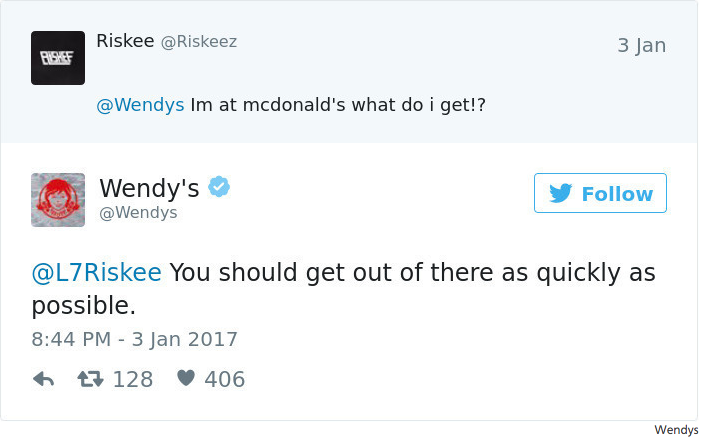The sheer volume of marketing options can be daunting for a small business owner, especially one just starting out who also has to deal with a thousand other responsibilities. A logical place to start in the marketing sphere is digital marketing. This form of marketing refers to any form of promotion or marketing of goods and services which is done on electronic media. Majority of digital marketing platforms are internet based.
The popularity of digital marketing isn’t waning and many professionals prefer it to traditional forms of marketing. This is to be expected as it offers certain features and possesses advantages over traditional forms of marketing, including a relatively low cost, high return on investment, ease of measurement, easy to adjust, easy to share, and precise targeting.
Aside from the above-mentioned advantages, digital marketing can also be done by anyone—it’s easy to get started and has a far reach. However, the more technical knowledge you have, the better your results will be. With a fair amount of technical knowledge, anyone can employ one or two types of this marketing and use it for the growth of their business. Below are six types of digital marketing options that can be employed to promote your small business.
1. Social media marketing
Digital marketing tends to be associated with social media—and for good reason. It is to be expected as social media marketing lies at the heart of digital marketing. Social media marketing can’t exist without the internet and is an efficient way to reach your target market quickly.
Social media marketing is the best way of connecting and communicating directly with customers. It gives customers direct access to the business, allowing them to make complaints, seek inquiries, and ask for clarification over important issues. It is a very flexible means of marketing and communication. Because of this accessibility, it is important to have someone managing your accounts and responding to any communications. Many large businesses are now infamous for their humorous take on social media marketing, which gets people talking and keeps the company top of mind. Wendy’s Twitter account is a prime example of this. Rather than always promoting their food, they respond to people’s questions and comments with sass and humor.

Social media marketing is an easy way to approach digital marketing. At its most basic, all you need to do is set up an account for your business and start posting. Of course, in some cases it requires a certain amount of technicality, for example, running paid Facebook Ads or using Facebook Live.
2. Search engine optimization (SEO)
This is another powerful type of digital marketing and if you’re not doing it, then no one will find your business organically. Some industry experts even regard it as its most popular form of marketing. SEO is a form of marketing that aims to make links to your website, Blog, Facebook account or any material on the web rank higher in Google or other search engines.
How does SEO work? Google is the most used search engine in the world, and it’s safe to say most people go to Google to find answers to their questions. Anytime a user searches for something, the results are listed in the order of what Google feels will best answer your question. , The first result is likely more relevant to your query than the second, and the second than the third, etc. Users are more likely to click on the top result and rarely go past the first page of results.
Take the search “what is CRM software?” for example. That yields more than 6 million results in less than a second. But are you really going to look past the first page?

SEO can be a tricky and often requires a bit of technical know-how. But, to start out, you can a simple do keyword research with tools like Moz or SEMrush. These sites allow you to see what people are searching for, allowing you to write content based on those keywords. However, if you are relying heavily on SEO for your digital marketing needs, it’s best to hire a professional.
3. Pay-per-click
Pay-per-click (PPC) is a cousin to search engine optimization. While search engine optimization ranks result in Google search organically, PPC uses money for ads that appear in search results. In simpler terms what it means is this: if your business cannot rank high enough in a search result organically, then you can purchase ads to appear in search. These ads may appear at the top of search results, before the organic listing or at the bottom of the search results. They are also noted as “ad” or “sponsored,” so the user knows it is an ad.

Google allows businesses and individuals that wish to advertise their businesses on its search engine to pay only when these links are clicked, hence the term "pay-per-click.” PPC utilizes keywords, which are based on what users put into the search. While setting up, businesses or individuals are asked to choose certain keywords associated with what their businesses stand for. Anytime such keywords are searched for on the search engine, the links appear.
4. Content marketing
Online, content is king. What determines the success or failure of a website or blog is the quality, and sometimes quantity, of its content. Content marketing is very important in marketing on digital platforms as it encompasses most other promotion techniques. SEO is dependent on content, for example. If your site has very little or doesn’t have the right keywords in the content, Google has nothing to put into search results.
In online marketing, there are times when you just have to stop trying so hard to sell and instead, focus on giving something to your audience. This would come in the form of quality content. This would attract them to you, getting you traffic, and in the process, you can get sales for your products. It often builds trust with the prospect. Even if they don’t buy from you on the first or even 20th visit, you have become their go-to source for information, and when they are ready to buy, you will be top of mind.
5. Affiliate marketing
Affiliate marketing is the process whereby a business allows people to sell its products or services on their websites or channels, and in the process get paid. These people are called affiliates and they are paid a commission when something is sold. This commission can be a percentage of the sale they made or it can be a flat amount per product.
Affiliate marketing allows a business to sit back and relax while its affiliates do everything possible to ensure its products are sold. The challenge of affiliate marketing for businesses is that they have to share their profits with affiliates, and in most cases, it isn't peanuts, as they have to make it so juicy that people will jump at the offer of helping to promote the product or service.
6. Influencer marketing
Similar to affiliate marketing, this is a form of marketing in which an individual or business strikes an agreement with an "influencer" in their niche market for the sake of making sales. Every business has people who have made their mark and are widely popular with a lot of followers.
These types of people are known as influencers. A new business or an individual can approach these influencers and ask them to help with the promotion of their businesses over the influencers' Instagram, Facebook page, Twitter handle, LinkedIn account etc. Such promotion will help drives sales for the new business. Instagram has become a great spot for influencer marketing. The image-first format offers easy visuals and reaches a younger audience that responds to influencer marketing.
The number of options that come with digital marketing can be daunting for a small business owner, but when taken one step at a time, it can be a simple and efficient way to reach a larger audience.
Kenneth Evans is a content marketing strategist for top app development companies, a research platform for top app development companies in the world. He has been contributing to various blogging platforms and forums.


